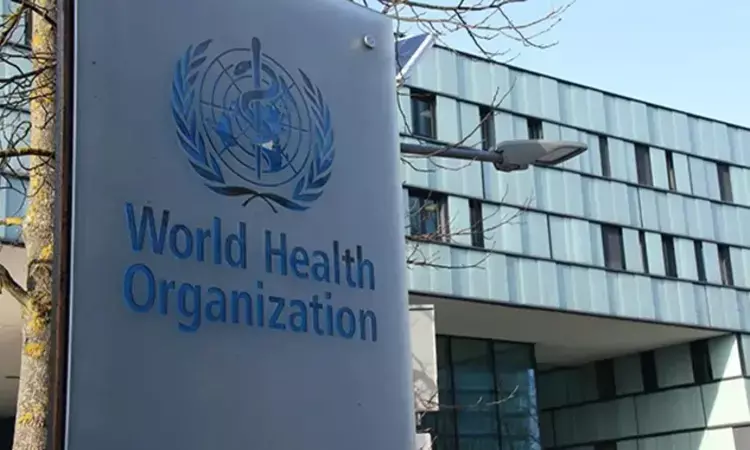- Home
- Medical news & Guidelines
- Anesthesiology
- Cardiology and CTVS
- Critical Care
- Dentistry
- Dermatology
- Diabetes and Endocrinology
- ENT
- Gastroenterology
- Medicine
- Nephrology
- Neurology
- Obstretics-Gynaecology
- Oncology
- Ophthalmology
- Orthopaedics
- Pediatrics-Neonatology
- Psychiatry
- Pulmonology
- Radiology
- Surgery
- Urology
- Laboratory Medicine
- Diet
- Nursing
- Paramedical
- Physiotherapy
- Health news
- Fact Check
- Bone Health Fact Check
- Brain Health Fact Check
- Cancer Related Fact Check
- Child Care Fact Check
- Dental and oral health fact check
- Diabetes and metabolic health fact check
- Diet and Nutrition Fact Check
- Eye and ENT Care Fact Check
- Fitness fact check
- Gut health fact check
- Heart health fact check
- Kidney health fact check
- Medical education fact check
- Men's health fact check
- Respiratory fact check
- Skin and hair care fact check
- Vaccine and Immunization fact check
- Women's health fact check
- AYUSH
- State News
- Andaman and Nicobar Islands
- Andhra Pradesh
- Arunachal Pradesh
- Assam
- Bihar
- Chandigarh
- Chattisgarh
- Dadra and Nagar Haveli
- Daman and Diu
- Delhi
- Goa
- Gujarat
- Haryana
- Himachal Pradesh
- Jammu & Kashmir
- Jharkhand
- Karnataka
- Kerala
- Ladakh
- Lakshadweep
- Madhya Pradesh
- Maharashtra
- Manipur
- Meghalaya
- Mizoram
- Nagaland
- Odisha
- Puducherry
- Punjab
- Rajasthan
- Sikkim
- Tamil Nadu
- Telangana
- Tripura
- Uttar Pradesh
- Uttrakhand
- West Bengal
- Medical Education
- Industry
WHO updates guideline on treatments for COVID-19

USA: The World Health Organization's (WHO) Guideline Development Group (GDG) has developed a living guideline that incorporates new evidence to dynamically update recommendations for COVID-19 therapeutics.
The new recommendations published by The BMJ are part of a living guideline, developed by the World Health Organization with the methodological support of the MAGIC Evidence Ecosystem Foundation, to provide up-to-date, trustworthy guidance on the management of COVID-19 and help doctors make better decisions with their patients.
The GDG typically evaluates a therapy when the WHO judges sufficient evidence is available to make a recommendation. While the GDG takes an individual patient perspective in making recommendations, it also considers acceptability, resource implications, equity, feasibility, and human rights.
World Health Organization has revised risk categories and hospitalization estimates. Distinct risk categories help doctors more accurately assess whether an individual is at high, moderate, or low risk of hospital admission and tailor treatment accordingly.
High risk: People with weakened immune systems remain at higher risk for severe COVID-19, with an estimated hospitalization rate of 6%.
Moderate risk: People older than 65 years, those with chronic conditions such as obesity, diabetes, chronic obstructive pulmonary disease, kidney or liver disease, or cancer, and those with disabilities or comorbidities of chronic disease are at moderate risk, with an estimated hospitalization rate of 3%.
Low risk: People who are not in the high- or moderate-risk categories are at low risk of hospitalization (0.5%). Most people fall into this category.
The updates include:
A new treatment benefit threshold of 1.5% (down from 6%) reduction in the risk of hospital admission. This reflects the lower baseline risk for most patients with non-severe COVID-19 as well as more safety evidence and wider availability of therapies.
A recommendation to use the antiviral drug nirmatrelvir-ritonavir in patients with non-severe covid-19 at high and moderate risk of hospital admission.
A recommendation against the use of the antiviral drugs remdesivir and molnupiravir for patients with non-severe covid-19 at moderate and low risk of hospital admission (treatment is suggested for patients at high risk of admission).
A recommendation against the use of a new antiviral (VV116) for patients with COVID-19 except in clinical trials, regardless of illness severity.
A strong recommendation against the use of ivermectin for patients with non-severe COVID-19 (advice against the use of ivermectin in patients with severe or critical COVID-19, except in clinical trials, still exists).
The experts say the new recommendations reflect changes in the virulence and transmissibility of circulating SARS-CoV-2 variants and sub-variants, along with changes in immunity related to global vaccinations, which have led to lower baseline risks of severe illness and death for most patients with non-severe COVID-19.
They acknowledge that there are still uncertainties around COVID-19 therapeutics and emerging evidence and say these recommendations need to be used in light of these uncertainties.
References: BMJ 2020; 370 doi: https://doi.org/10.1136/bmj.m3379 (Published 04 September 2020)
Cite this as: BMJ 2020;370:m3379
Dr Kamal Kant Kohli-MBBS, DTCD- a chest specialist with more than 30 years of practice and a flair for writing clinical articles, Dr Kamal Kant Kohli joined Medical Dialogues as a Chief Editor of Medical News. Besides writing articles, as an editor, he proofreads and verifies all the medical content published on Medical Dialogues including those coming from journals, studies,medical conferences,guidelines etc. Email: drkohli@medicaldialogues.in. Contact no. 011-43720751


